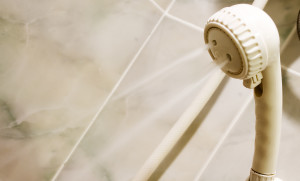It’s one of the great questions in life: should you shower in the morning or at night? Each side definitely has its devotees, while others simply allow their schedule to dictate when’s the best time to wash up.
But let’s say you have time both morning and night for a shower. Is one truly better than the other? It turns out quite possibly, but it depends on several factors. Depending on your lifestyle and goals, a morning shower or night shower may make more sense for you.
You Should Take a Morning Shower If …
You have a creative or perplexing problem that needs to be solved. Let’s say you’ve been mulling over this problem all day, then you put it in the back of your mind while you sleep. In the morning, you hop into the shower, which induces a relaxed yet alert alpha brain wave state.
This state is also induced by meditation and exercise, and when you’re in it your thought processes are able to relax and regenerate, such that the answer you’ve been looking for may become immediately apparent.[i] As noted in the journal Frontiers in Human Neuroscience:[ii]
“Anecdotal accounts of creative individuals suggest that oftentimes, creative discoveries result from a process whereby initial conscious thought is followed by a period during which one refrains from task-related conscious thought.
For example, one may spend an embarrassing amount of time thinking about a problem when the solution suddenly pops into consciousness while taking a shower.”
But there are other reasons to shower in the morning as well, including:[iii]
- You’ve got oily skin: Oil may build up during the night and a morning shower helps clean out your pores.
- You’re a sweaty sleeper: If you sweat a lot at nighttime, a morning shower will help you feel refreshed.
- You’re a man who likes a clean shave: You can shave in the morning over the sink, but a shower will soften the hair even more, leaving you with a smoother shave.
- You’re an early bird: Showering in the morning necessitates some extra time. So if you’re already an early riser, you’ll have plenty of time in the morning for a shower.
You Should Shower at Night If …
You have trouble sleeping. Your body temperature drops when you go to sleep, and when you shower at night, your body temperature will rise and then drop swiftly after you get out. This natural temperature drop may trick your body into think it’s time for bed.[iv][v]
At the same time, a shower is typically relaxing, which can lower your cortisol levels, making it easier for you to fall asleep. If you still need extra help getting restful sleep, give Sleepzyme®, an all-natural non-addictive sleep formula, a try. Sleepzyme® actually has seven of the most powerful natural ingredients to promote healthful sleep, so you can feel well rested and energized, safely and naturally (even if you prefer to shower in the morning).
The other key reason to shower at night has to do with what you do during the day. If you work a long shift at a construction site, live in a polluted urban area or work in a health care setting, for instance, washing off dirt and grime at the end of the day is important. NYC-based internist Holly Phillips, MD told Yahoo Health:[vi]
“As a resident, after working long shifts in the hospital around illnesses and germs, I would take off my clothes at the door and head straight to the shower to prevent bringing bacteria and viruses into the house.”
Showering at night may also be beneficial for those with dry skin, as you can slather on some coconut oil when you get out and then head for bed – giving your skin hours of protection before heading back out into the elements.
How Often Should You Shower?
In the United States and worldwide, the average person showers once a day (although hair is not washed during every shower; hair washing averages out at four times a week). In some countries, like Australia, Mexico and the Middle East, slightly more than one shower a day is average, while those in Brazil may shower up to 12 times a week.[vii]
This daily shower ritual is relatively new, however. It didn’t begin until indoor plumbing became widespread and advertising for “toilet soap” (which was meant for the body, unlike the harsher “soap” meant for laundry) increased in the early 20th century.[viii]
With the growing knowledge that your body is the product of its microbial community, there is increased concern that washing too often may actually strip away beneficial microflora on your skin and may make your skin health worse. John Oxford, Professor of Virology at Queen Mary’s School of Medicine and Dentistry, told the Daily Mail:[ix]
“A vigorous daily shower would disturb the natural bug flora of the skin as well as skin oils … As long as people wash their hands often enough and pay attention to the area of the body below the belt, showering or bathing every other day would do no harm.
Even twice a week would not be a problem if people used a bidet daily as most infectious bugs hang around our lower halves … We pay too much attention to the body beautiful and smelling good, with perfumes for men and women … We should wash to stop cross-infection, not for grooming reasons.”
Again, if you work in a dirty environment or exercise heavily, a daily shower might be necessary – even if only to ‘rinse off.’ But if you’re mostly moving from air-conditioned office to your home and back, skipping a day or two is fine – and possibly beneficial.
Next Up… Don’t Miss The 12 GERMIEST PLACES in Your Everyday World
(#12 may surprise you!)
[ii] Front Hum Neurosci. 2014; 8: 215.
[iv] Chronobiol Int. 1994 Apr;11(2):126-31.
[v] Sleep. 1997 Jul;20(7):505-11.
[vii] The Atlantic February 17, 2015


